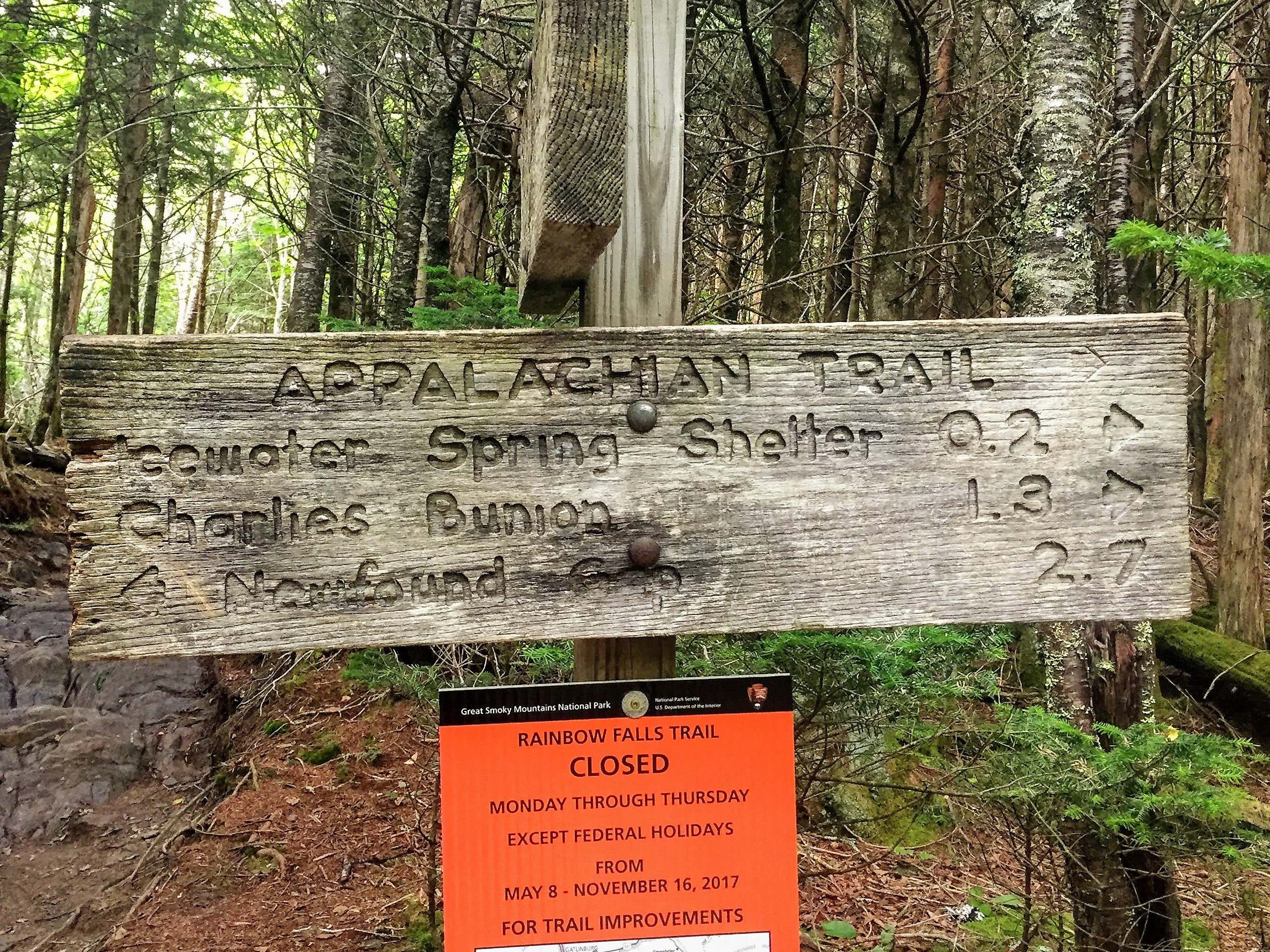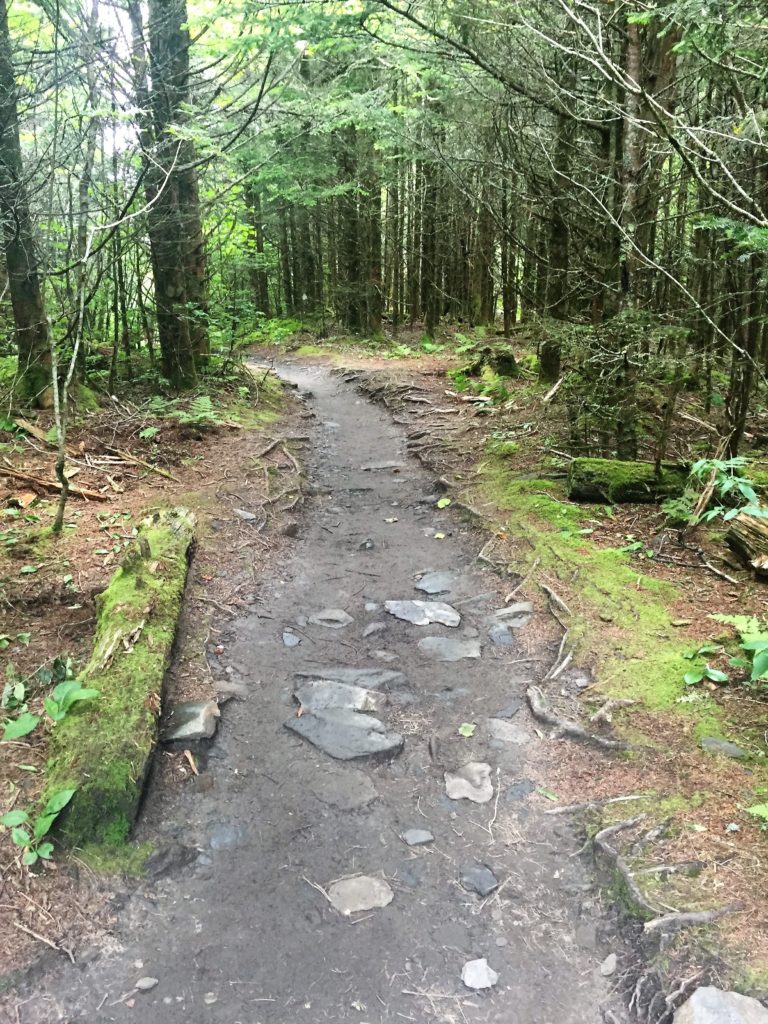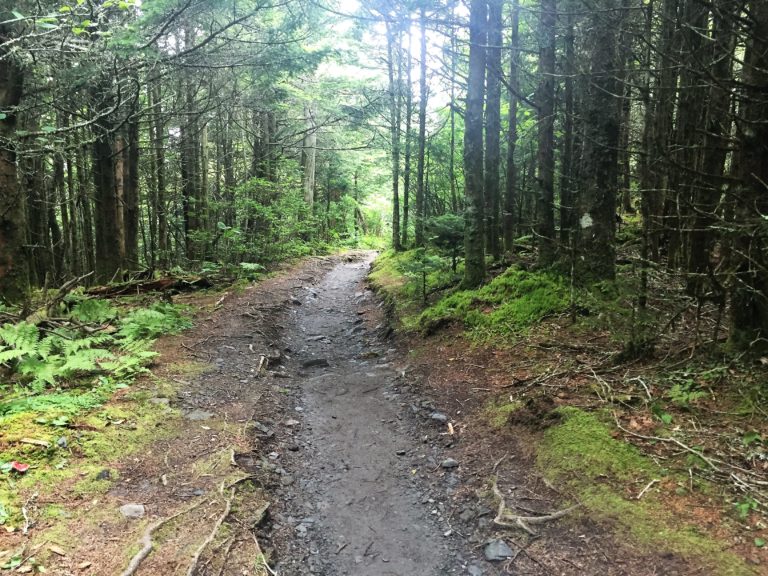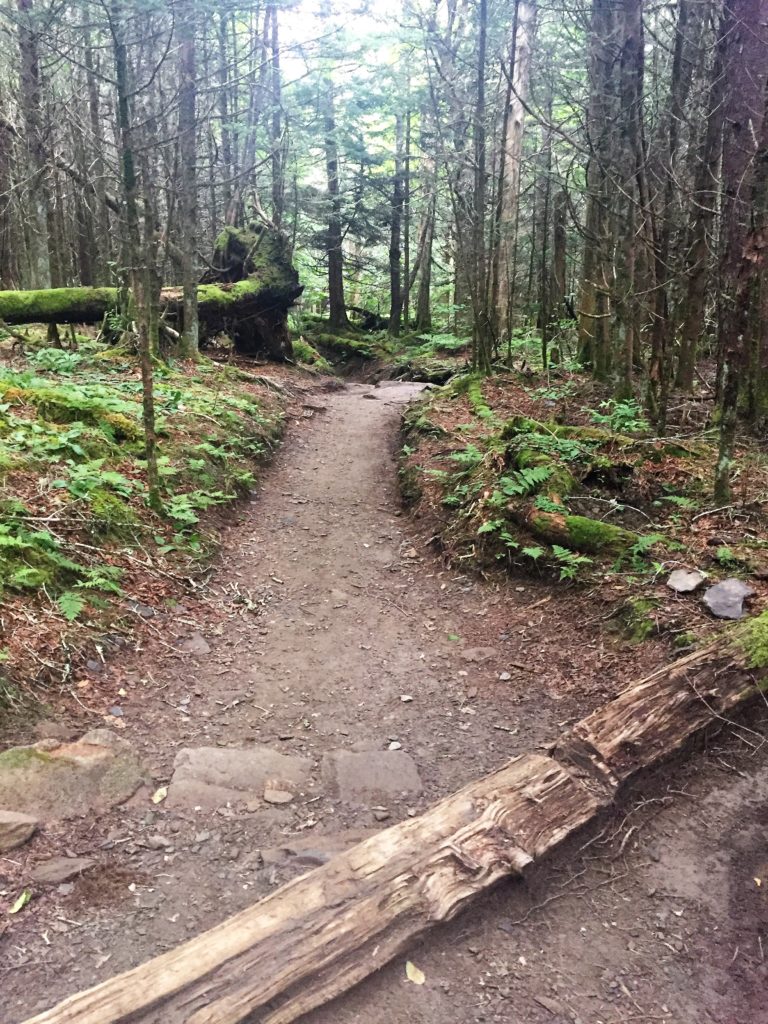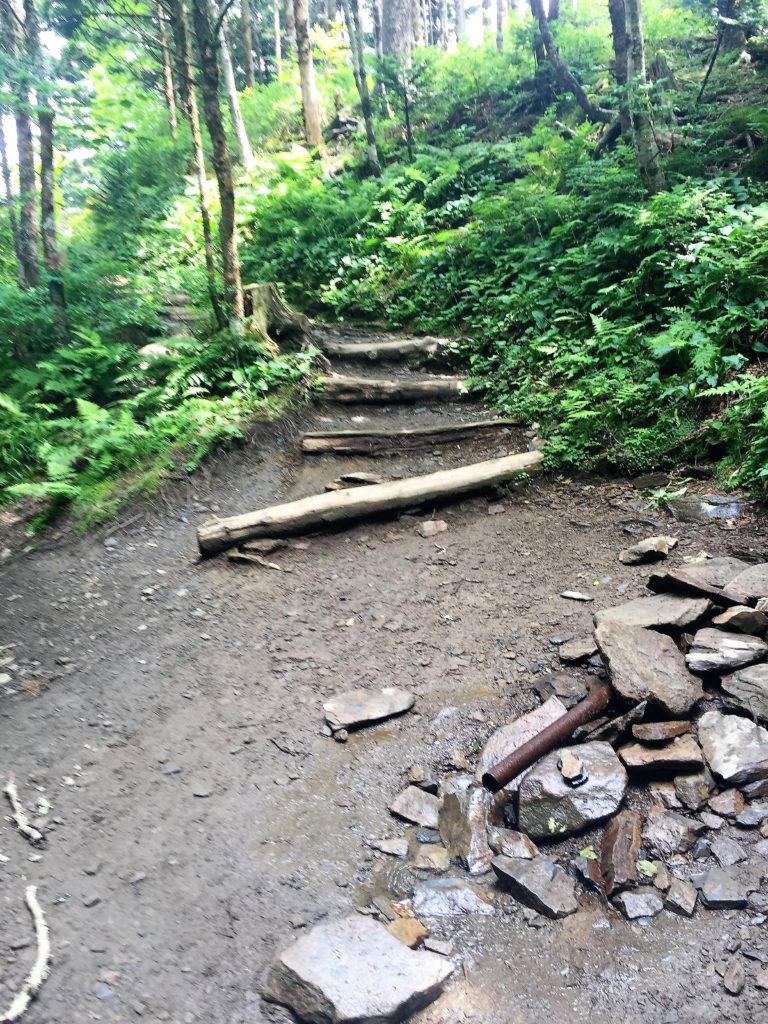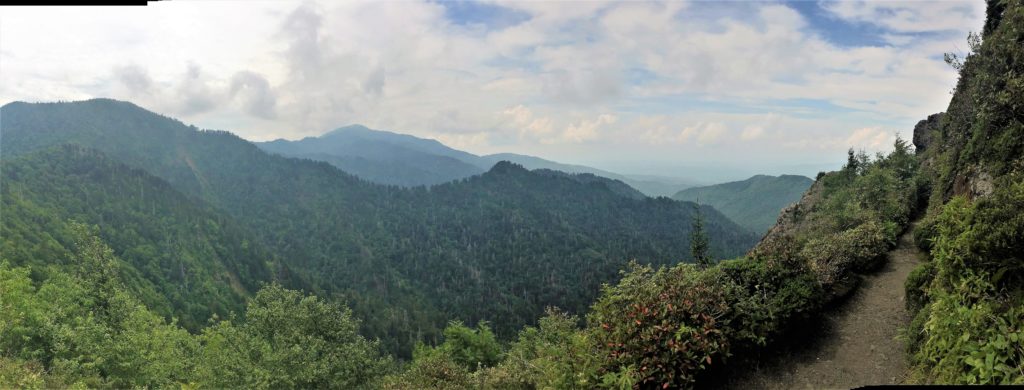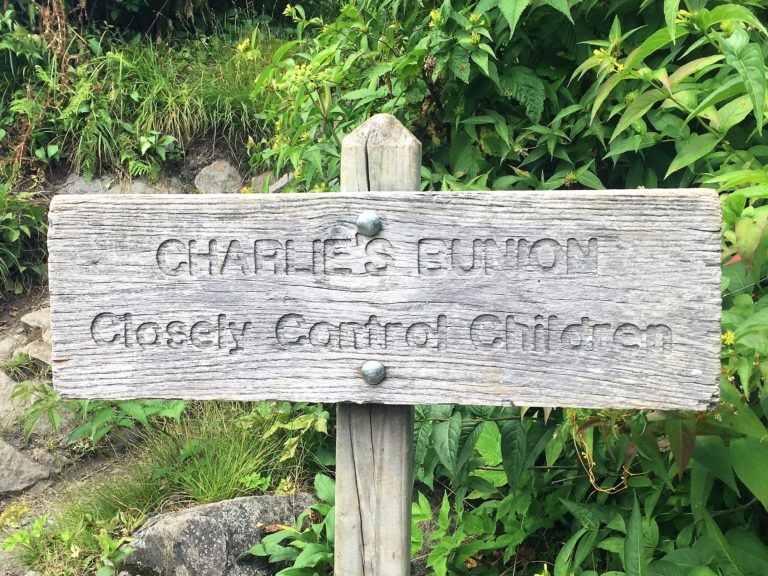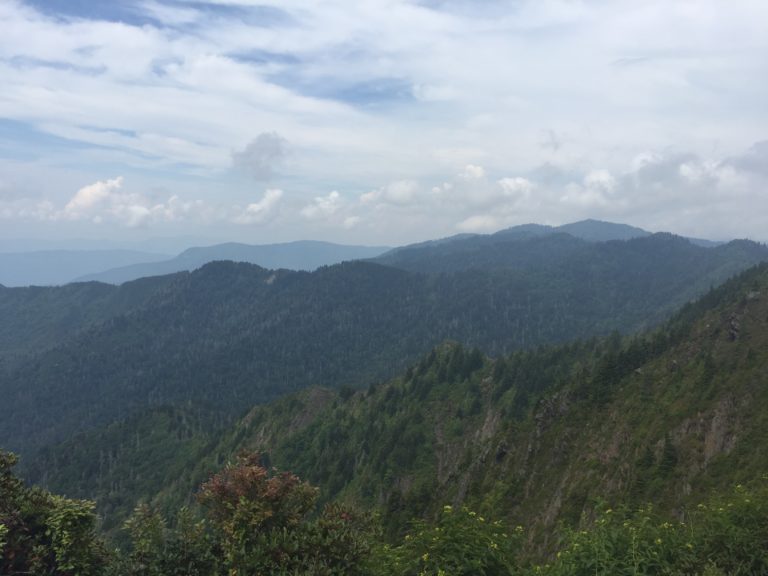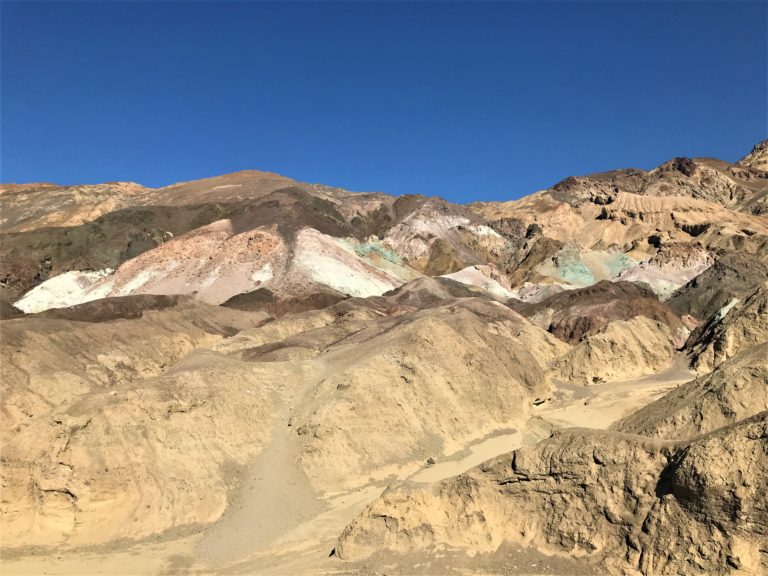On a drive from our summer vacation to a customer visit in Greenville, SC I took advantage of the opportunity to take a hike on the Appalachian Trail from Newfound Gap to Charlies Bunion.
For those who hike on the Appalachian Trail they follow this white blaze for the entire 2179 miles.
Newfound Gap is a mountain pass in the Great Smoky Mountains of eastern Tennessee and western North Carolina, United States. It is part of the Appalachian Trail, a 2,200-mile footpath that runs from Georgia to Maine. The pass is located at an elevation of 5,046 feet (1,538 meters) and is named for the fact that it was a newly discovered gap in the mountains when it was first surveyed in the 1870s.
The history of Newfound Gap and the surrounding area dates back thousands of years, when the Cherokee people lived in the region. They used the mountain passes to travel from one valley to another, and Newfound Gap was an important route through the Great Smoky Mountains. The Cherokee called the area “Indian Gap” and used it for hunting and gathering.
In the 1800s, European settlers began to move into the area, and logging became an important industry. The forests were heavily harvested for lumber, and the mountains were also home to moonshiners who made illegal whiskey in hidden stills. By the early 1900s, much of the land had been cleared, and the mountains were in danger of becoming barren wastelands.
In the 1920s, a movement began to preserve the Great Smoky Mountains as a national park. The park was established in 1934, and the Appalachian Trail was rerouted through the park in the 1940s, passing through Newfound Gap. Today, Newfound Gap is a popular destination for hikers and tourists, offering stunning views of the surrounding mountains and valleys.
The area around Newfound Gap is also rich in Civil War history. During the war, the pass was used by both Union and Confederate troops as they moved through the mountains. The Battle of Newfound Gap was fought in 1863, with Confederate forces attempting to block the Union advance through the pass. The battle was a tactical victory for the Confederates, but they were ultimately forced to retreat.
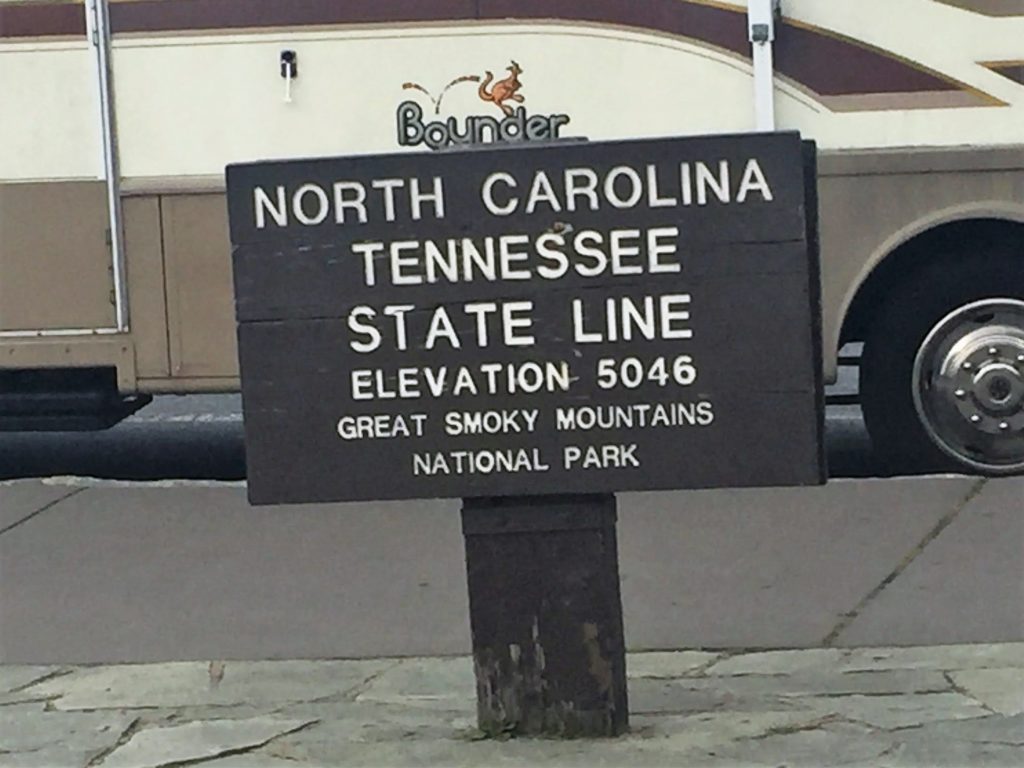
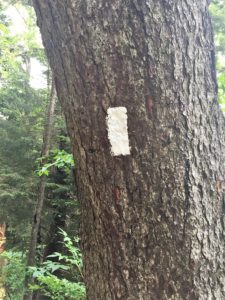
Kephart Shelter
On the way to Charlies Bunion you pass the Kephart Shelter just after the junction to the Boulevard Trail (which heads to Gatlinburg. You have all the luxuries of home. running water and a toilet.
